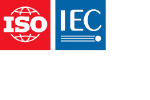Тезис
ISO/IEC 29341-1:2011(E) Defines UPnP technology which describes an architecture for pervasive peer-to-peer network connectivity of intelligent appliances, wireless devices, and PCs of all form factors. It is designed to bring easy-to-use, flexible, standards-based connectivity to ad-hoc or unmanaged networks whether in the home, in a small business, public spaces, or attached to the Internet. UPnP technology provides a distributed, open networking architecture that leverages TCP/IP and the Web technologies to enable seamless proximity networking in addition to control and data transfer among networked devices. The UPnP Device Architecture (UDA) is designed to support zero-configuration, "invisible" networking, and automatic discovery for a breadth of device categories from a wide range of vendors. A device can dynamically join a network, obtain an IP address, convey its capabilities, and learn about the presence and capabilities of other devices. Finally, a device can leave a network smoothly and automatically without leaving any unwanted state behind. The technologies leveraged in the UPnP architecture include Internet protocols such as IP, TCP, UDP, HTTP, and XML. Like the Internet, contracts are based on wire protocols that are declarative, expressed in XML, and communicated via HTTP. This International Standard replaces ISO/IEC 29341-1, first edition, published in 2008, and constitutes a technical revision.
Общая информация
-
Текущий статус: ОпубликованоДата публикации: 2011-09Этап: Подтверждение действия международного стандарта [90.93]
-
Версия: 2
-
Технический комитет :ISO/IEC JTC 1ICS :35.200
- RSS обновления
Жизненный цикл
-
Ранее
ОтозваноISO/IEC 29341-1:2008
-
Сейчас
ОпубликованоISO/IEC 29341-1:2011
Стандарт, который пересматривается каждые 5 лет
Этап: 90.93 (Подтверждено)-
00
Предварительная стадия
-
10
Стадия, связанная с внесением предложения
-
20
Подготовительная стадия
-
30
Стадия, связанная с подготовкой проекта комитета
-
40
Стадия, связанная с рассмотрением проекта международного стандарта
-
50
Стадия, на которой осуществляется принятие стандарта
-
60
Стадия, на которой осуществляется публикация
-
90
Стадия пересмотра
-
95
Стадия, на которой осуществляется отмена стандарта
-
00


